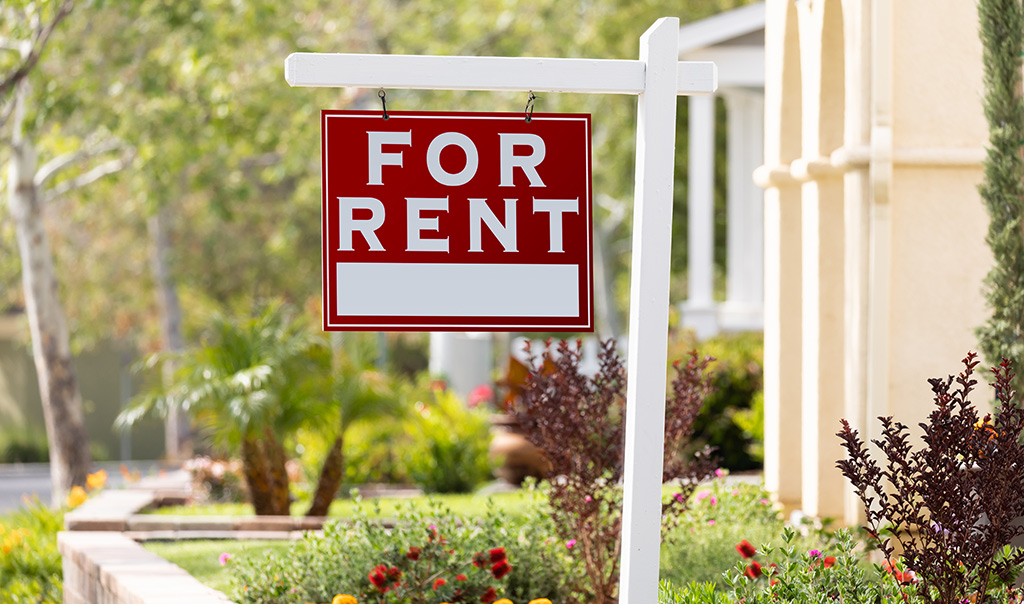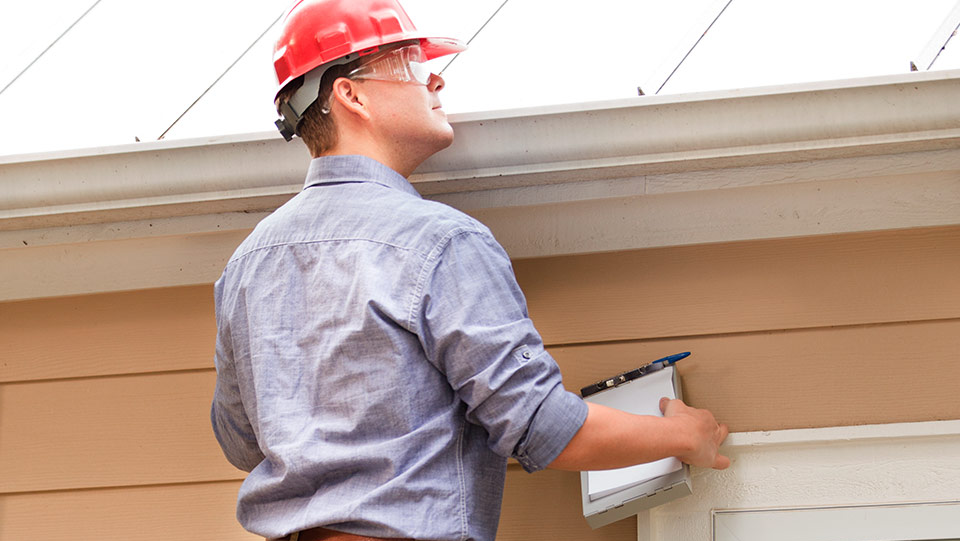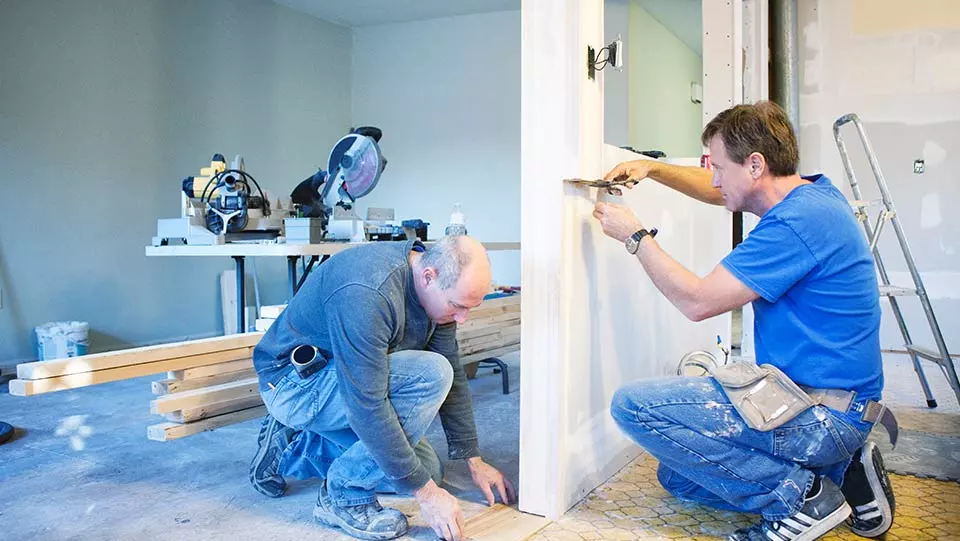Landlord Insurance for Rental Properties

Travelers is proud to work with the finest Independent Agents

Considering renting out your home or investing in a small residential property with a couple of apartments to generate extra income? The notion may be intriguing, and becoming a landlord can be rewarding, but it’s a decision you’ll want to consider carefully to make sure your financial interests are protected. Consider this: Your homeowners insurance typically won’t cover a variety of risks you’ll be exposed to once you decide to rent out a residential property that you own. That’s where landlord insurance comes in. There are a number of ways to protect yourself. Here’s what you need to know about landlord insurance.
What is landlord insurance?
Landlord insurance is coverage generally designed for owners of rental properties of one to four units, including apartments, condominiums, and single- or multi-family homes that you own and rent to others. It can help protect you from the potentially devastating costs of losses to your rental properties. It generally covers things like damage to the structures and can be customized to cover damage to systems, furnishings and appliances within those structures. One thing it won’t cover is the personal possessions inside the rental property that belong to your renters. Renters should have their own renters insurance policy to ensure that their own personal property is covered. As a landlord, you may also want to add coverage to your Landlord policy for Loss of Rent, should an event occur that renders the property unusable.
Do I need landlord insurance?
If you’re renting out property that you own, you need landlord insurance to protect you from possible losses. Landlord insurance can help ensure that you protect yourself against the costs of property damage and personal injury to a tenant or a visitor to your property.
Here’s another point to consider if you’re planning on acquiring a mortgage to purchase a property to rent out to others: Mortgage lenders typically require proof that the rental property is insured appropriately before they will issue you a loan. As a result, you may want to do some research ahead of time, including exploring your options for landlord coverage and speaking to your insurance agent for guidance so that you will be prepared to “check that box” when a mortgage lender asks you about it.
Am I considered a "landlord"?
Believe it or not, you may be a landlord and not even realize it. For example, if you’ve been trying to sell your home without success and you need to make a move soon, you might decide to rent out your home for the time being. You may consider this to be a temporary solution to your housing dilemma, but guess what? Your renting action makes you a landlord, and that means your finances are at risk if something happens to the home or the tenant renting it. If you're renting out a property in any way, you'll want to obtain the appropriate landlord insurance policy to help ensure you're fully protected.
Homeowners insurance vs. landlord insurance: What's the difference?
Homeowners insurance is generally designed to cover both your property and the people and belongings within it. Landlord insurance, on the other hand, generally covers the structure you are renting. You can add extra coverages to protect your household furnishings and appliances located on the property, or against the costs of injury or covered property losses at the home. You may also want to ask your tenants to get their own renters insurance policy, which can help protect their personal belongings at the rental property in case of a covered loss.
How much landlord insurance should I get?
The right amount of coverage depends on the size of your building, the cost to rebuild or replace it, and how many tenants and structures you have on the property. Furnished or unfurnished, your rental property presents a unique set of risks, and your insurance agent can help you weigh your needs and your budget to determine the right amount of coverage and which features are the best fit for you. Some insurance carriers will let you customize your policy by scaling up or down your coverage based on your needs.
What does landlord insurance cover?
Most rental property insurance policies generally provide coverage for your personal property, such as appliances and household furnishings, in addition to the building. Some insurance carriers may allow you to scale this coverage to a minimum amount, or as high as needed to properly cover the things you own and furnish for use at the property. Most policies also automatically factor in coverage for structures outside the home, like sheds and detached garages. You should ask your insurance carrier if you can scale up or down your Other Structures Coverage based on your situation.
How do I buy landlord insurance?
You'll need to find an insurance carrier who specifically offers landlord or rental property insurance, because not all companies do. If your rental activities are evolving (meaning you may have more or fewer properties/tenants in the future), then you may also want an insurance carrier who offers a more customizable and scalable policy option. This will provide flexibility so you can adapt your coverage to meet your needs, as they may change year over year.
What determines the cost of landlord insurance?
The cost of landlord insurance varies and depends on a variety of details. These can include: where your rental property is located, the type and size of the property, the volume of rental activity you're participating in, and the deductible and coverages you choose. The biggest factor in determining your insurance premium will be how much the property would cost to rebuild or replace. Talk through the details of your rental property with your insurance agent to understand what’s involved in the cost of insuring your investment so you can decide what coverage and features will suit you best.
Are there discounts if I have smart home protection devices?
Certain smart home protective devices can qualify you for savings on your landlord insurance premium with some insurance carriers. These can be devices that alert you and your tenant of a potential fire, burglary or water emergency via mobile devices. Check with your insurance agent to find out if there are any savings or discounts available if your rental property has smart home protection devices. It’s just one of a variety of discounts that insurance carriers typically offer.
How else can I save money on my insurance?
You can save money on your rental property insurance when you bundle your property coverage with Home, Auto or other policies like Boat or Umbrella Insurance or a Personal Articles Floater, which covers high-value personal items like fine art and jewelry. There are usually savings benefits when you choose to purchase more than one policy from the same company, so it’s worth a call to your insurance agent to ask about bundling your policies and other ways you can save on your insurance.
Does landlord insurance cover me for legal risks?
Landlord insurance is generally designed to cover damage and losses to the property itself. Premises liability can cover injuries and property damage to others that occur on your property. Landlord insurance also includes medical payments coverage, which can help with medical costs should someone be injured on your rental property. There are also coverage endorsements you can add to help cover your furnishings, appliances, additional structures (such as sheds or garages) and more.
What is loss of rent coverage?
Loss of Rent insurance, also called Loss of Use coverage, protects you in the event your property is no longer a viable income stream due to damage or loss. If the rental property is damaged in a storm, for example, and is no longer inhabitable for tenants, then Loss of Rent coverage can compensate you for fair rental value of the property while it's being repaired. This coverage is subject to the terms and limits in your policy, so you’ll need to check with your insurance agent to ensure you have it and how much coverage is provided.
Do I need liability insurance for my rental property?
Yes, and the good news is that liability insurance is included in your landlord insurance coverage. You may want to consider additional protection through an Umbrella Insurance policy, which provides extra liability coverage that can help protect you from liability costs that exceed your primary coverage as well as help cover defense costs, attorney fees and other charges associated with lawsuits.
Do I need different insurance if I have short-term renters?
You may need to add home sharing coverage to your landlord or homeowners policy if you plan to rent your property out as short-term living space, such as for out-of-town residents who are visiting on vacation in your area. Nowadays, vacation rental properties can be a room in your home or a separate living space that you’ve purchased to rent to visitors. Whether it’s a summer cottage or a city apartment that you’ve invested in to rent out for extra income, consider adding home sharing coverage to your landlord or homeowners insurance policy. This can help cover you for covered property damage and losses incurred during these home-sharing activities.
Travelers’ landlord insurance policies are designed for owners of condos, apartment buildings or single- and multi-family homes with one to four units. Want to learn more about our coverage, costs and how to protect yourself? Contact a Travelers agent today.



